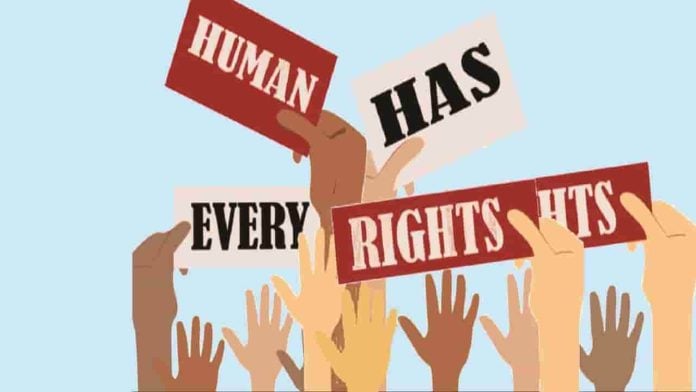By Sanjay Raman Sinha
Despite the United Nations charter, it took India decades to create an independent human rights body, the National Human Rights Commission (NHRC). Since then, it has acted as an ombudsman of sorts. However, it has no penal powers, only recommendatory ones.
For the past several decades, incidents of mob lynching, religious frenzy, violence and hate speech have infringed on the human rights landscape of the country. In such a situation, the importance of NHRC has exponentially increased.
Though our human rights situation compares better than other developing nations, violations in many areas are a matter of serious concern. One area is encounter deaths. The country has seen a 15% decline in encounter deaths between 2016-17 and 2021-22, but there has been a 69.5% increase in the last two years. In all the six years, only once has the NHRC recommended disciplinary action or prosecution in respect of “deaths in police encounters”, according to the government’s reply to the Rajya Sabha in March. Instead, the NHRC has recommended a total compensation of Rs 7.16 crore over the last six years. In 2015, the Supreme Court issued guidelines regarding police encounters, making it mandatory to investigate every encounter. This investigation is done by an independent agency.
Another area of concern is lockup or custodial deaths, which have increased in the last one year. There have been 4,484 deaths in police custody over the last two years. These are government figures. According to the National Crime Records Bureau’s 2021 report, Gujarat recorded the highest number of custodial deaths among all states and Union Territories for the second consecutive year. Between 2020 and 2022, in UP, 1,352 people died in custody. West Bengal was second, followed by Bihar and then, Madhya Pradesh. The police was also in the dock in cases of custodial torture and death, and the conviction rate was very low here.
In addition, prisoner rights are also under a cloud. India ranked sixth in the world with 75% of undertrial prisoners. Three out of every four prisoner was an undertrial awaiting justice and languishing behind bars. There were 3,71,848 prisoners in India whose trial has not even begun in court. Many are condemned to remain in jail due to lack of bail surety or some other reason. Recently, the Supreme Court expressed displeasure while hearing this matter. It asked states and Union Territories to collect information about all such prisoners who are still in jail after bail.
Even today, there are many laws which though made for national security are being so misused that they remind one of the Emergency era. Some of these laws are Unlawful Activities (Prevention) Act or UAPA, National Security Act or NSA, certain provisions of the Prevention of Money Laundering Act( PMLA) and Narcotic Drugs and Psychotropic Substances Act (NDPS).
Under UAPA, though the number of arrests decreased by 32% from 1948 to 1,321 in 2019, the number of convictions shot up from 34 to 80, an increase of 135%.
The NSA came into existence on September 23, 1980, during the tenure of Indira Gandhi and is still in force. The Act gives the right to arrest any person suspected of anti-national activity. Under NSA, a suspect can be kept in jail for up to 12 months without any charge. Of the total preventive detentions, 483 were under NSA, of which almost half (241) were either in custody or still detained as of 2021-end.
About 1,331 persons were detained under the NDPS Act. Figures of preventive detention are equally shocking. In 2021, these rose by over 23.7% compared to the year before. In 2021, over 1.1 lakh people were being placed under preventive detention. Clearly, detention is proving to be a scourge in terms of human rights.
In many cases, NHRC performed well, but found itself helpless in many matters. Herein, the need for giving more teeth to the body gains currency. Today, there is a need for a powerful and proactive NHRC which protects the rights of citizens in every situation. This, along with making the administration and the government more responsive towards the Commission, will help improve and protect human rights.


